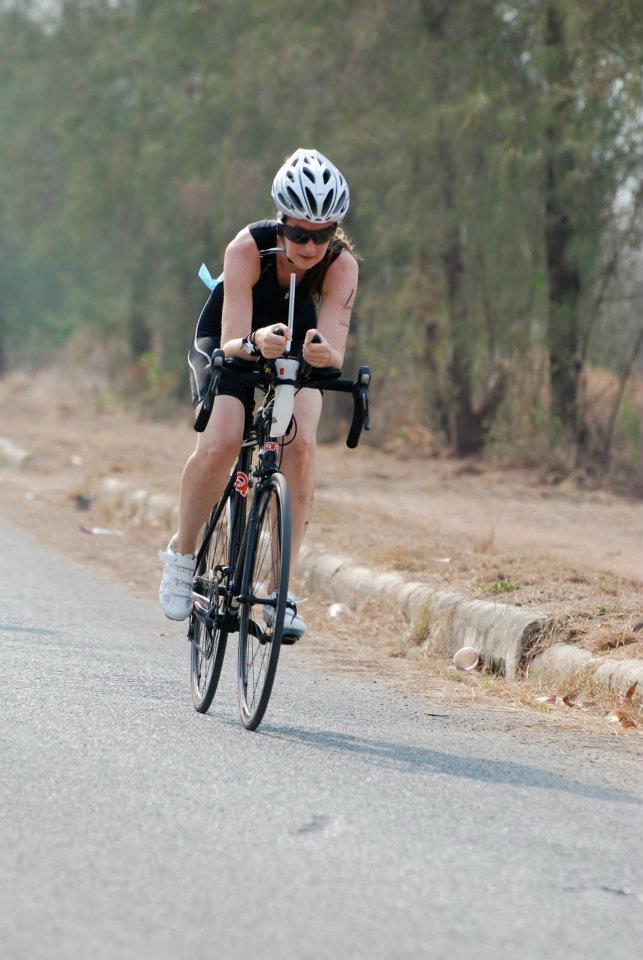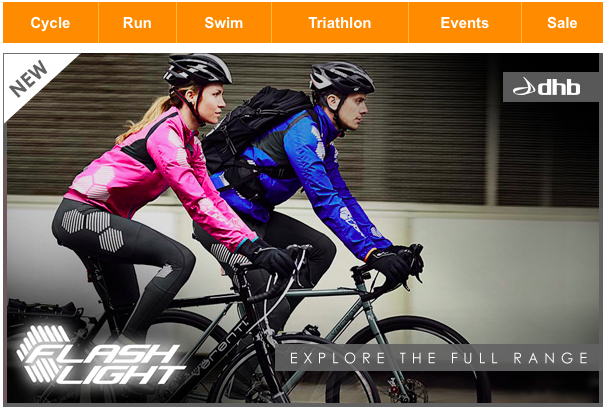Guest blogger Oliver Wastie helpfully addresses a common question of wearing glasses or using contact lenses and how this fits with cycling…..
Contact lenses or spectacles for cycling? A Perspective
 Cycling is one of the most popular sports in the country, catering to all tastes and ages from those who are just out for a leisurely scenic ride to the more serious bikers out for some hardcore adventure, not to mention the increasing numbers who commute to work by bike. In April, the UK Department of Transport revealed that 10 per cent of adults cycled at least once a week, which means millions of us are out there on our bikes. With so many of us cycling, those who need some form of vision correction might want to give some thought to the aspects and considerations about either wearing contact lenses or spectacles to correct vision problems. This may not be a subject that cyclists give a lot of thought to but since cycling safety depends to a certain extent on situational awareness, it is worth weighing up some of the arguments, which broadly fall into three categories: practical issues, eye health and visual acuity.
Cycling is one of the most popular sports in the country, catering to all tastes and ages from those who are just out for a leisurely scenic ride to the more serious bikers out for some hardcore adventure, not to mention the increasing numbers who commute to work by bike. In April, the UK Department of Transport revealed that 10 per cent of adults cycled at least once a week, which means millions of us are out there on our bikes. With so many of us cycling, those who need some form of vision correction might want to give some thought to the aspects and considerations about either wearing contact lenses or spectacles to correct vision problems. This may not be a subject that cyclists give a lot of thought to but since cycling safety depends to a certain extent on situational awareness, it is worth weighing up some of the arguments, which broadly fall into three categories: practical issues, eye health and visual acuity.
Practical issues: keeping contact lenses clean
Daily disposable lenses are popular with cyclists and contact lens wearers in general for the obvious flexibility and comfort they provide. As is pretty self-evident, you just throw them in the bin after use: simple, no cleaning and no fuss. Alternatively, if you wear a type of lens that needs to be cleaned at the end of the day, it is easy enough to carry a small bottle of contact lens solution with you if you are out on a trip and find that for whatever reason you suddenly need to clean your lenses. Whatever type of contact lens you use taking an extra pair with you on a cycling trip is a sensible and easy idea and will not exactly weigh you down!
Eye health
While the flexibility of daily disposable contact lenses is pretty obvious, they also promote eye health because you just remove them at the end of the day, so there is no problem with any build up on the lens of either proteins or road dust, for example.
One aspect about wearing contact lenses and cycling that may be considered an inconvenience if not a problem is that the eyes are not shielded from mud or insects, and similarly they do not offer any protection from sunlight. However, some contact lenses, although not all, have UV blocking properties; Acuvue, for example, block as much as 90% of UV-A and 99% of UV-B rays. One possible solution would be to invest in a pair of protective sunglasses, which could be used in conjunction with lenses to provide the necessary protection against harmful UV rays. For more serious cyclists who wear contact lenses, riding at speed without eye protection may also lead to the sensation of dry eyes and a feeling that the lenses could fall out. There are a number of ways to combat this though and trying different types of lenses and eye-drops are possible solutions.
Visual acuity
It is in terms of visual acuity that there is the greatest difference between contact lenses and glasses. The fact that soft contact lenses adapt to the shape of your eye means that they are very comfortable and unlikely to pop out, and for this reason offer a lot of stability compared with spectacles, which can easily or inadvertently be knocked off or dislodged. This could prove expensive if they break and also leave you unable to see much depending on your eyesight. Since lenses just sit on your eye, they are easy to wear under other protective items, whereas spectacles can sometimes be something of a hassle under a cycling helmet.
If you are out cycling and get caught in the rain (imagine that in the UK!) then contact lenses do not get obscured by rain drops, or steamed up or smudged with sweat and dirt for that matter. Since contact lenses do not have frames, there are no partial blind spots because the field of view is not restricted, which is a critical safety issue since the majority of cycling injuries result from collision with vehicles, so anything that improves vision keeps the cyclist safer overall. Depth perception and clarity are also excellent with lenses because contact lenses move with the eye, so you are always looking through the central part of the lens, i.e. the part that corrects your vision.
But irrespective of whether you have perfect vision or not, it is just important to enjoy cycling and to be safe.
Oliver enjoys cycling for leisure and works for an online contact lens price comparison site




 RSS – Posts
RSS – Posts
I think taking an extra pair of contact lenses is a wise idea. If you use the ones which need cleaning, take an extra pair of disposable ones with you should you need a spare.
Wheelies, yep I think that’s a good idea. I even carry a spare pair of glasses in my puncture repair kit!
Regards, Doug.
Yes you should carry an extra spare pair of contacts or glasses whichever you use. So that you don’t experience any problems while you are on your adventurous trip.
I completely agree with all of this – having a back up way of seeing is so important if you are going to be doing ANY traveling away from home.
The article is just great. Like you said “This may not be a subject that cyclists give a lot of thought to” , it is a very important aspect to consider but so many put no thought to it whatsoever. You eyes are your main defense when it comes to protecting yourself when cycling, you need to be fully aware of your surroundings and this article sums it up perfectly.
Have been toying with the idea. Looking for info. Great post 🙂
if dirt goes into the eyes while cycling what do we do? and if its scorching outside should i use sunglasses?